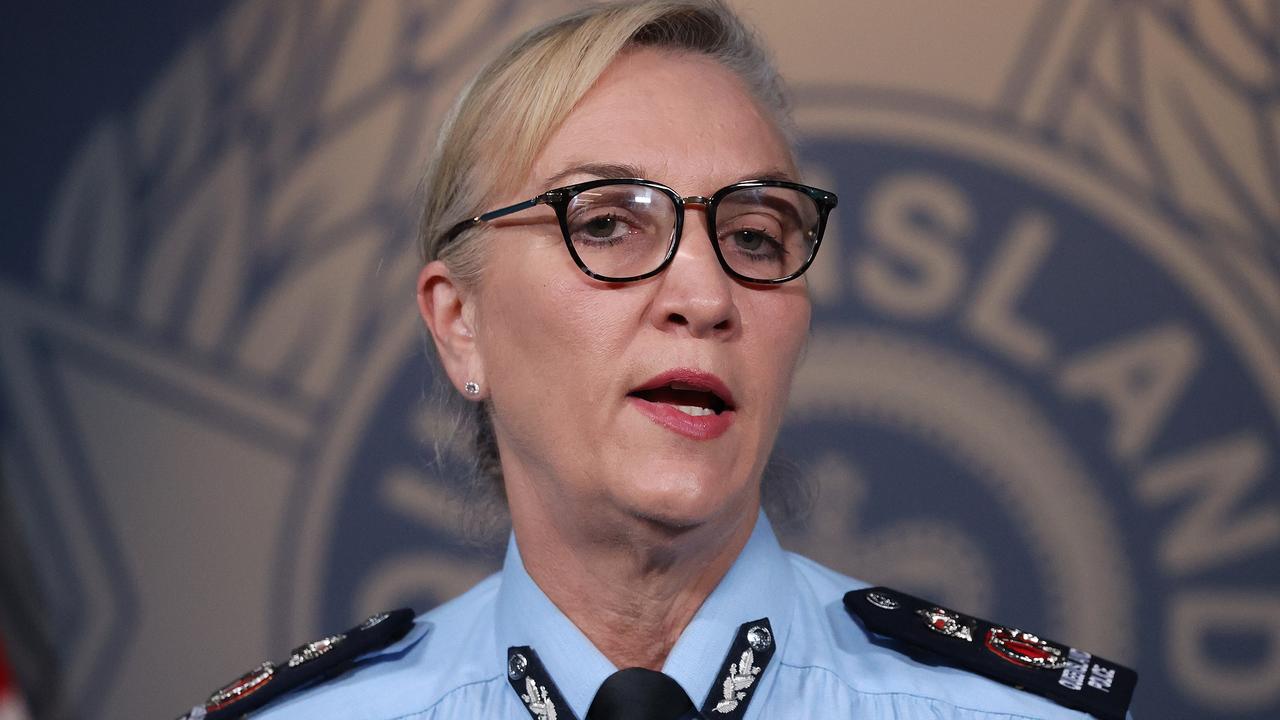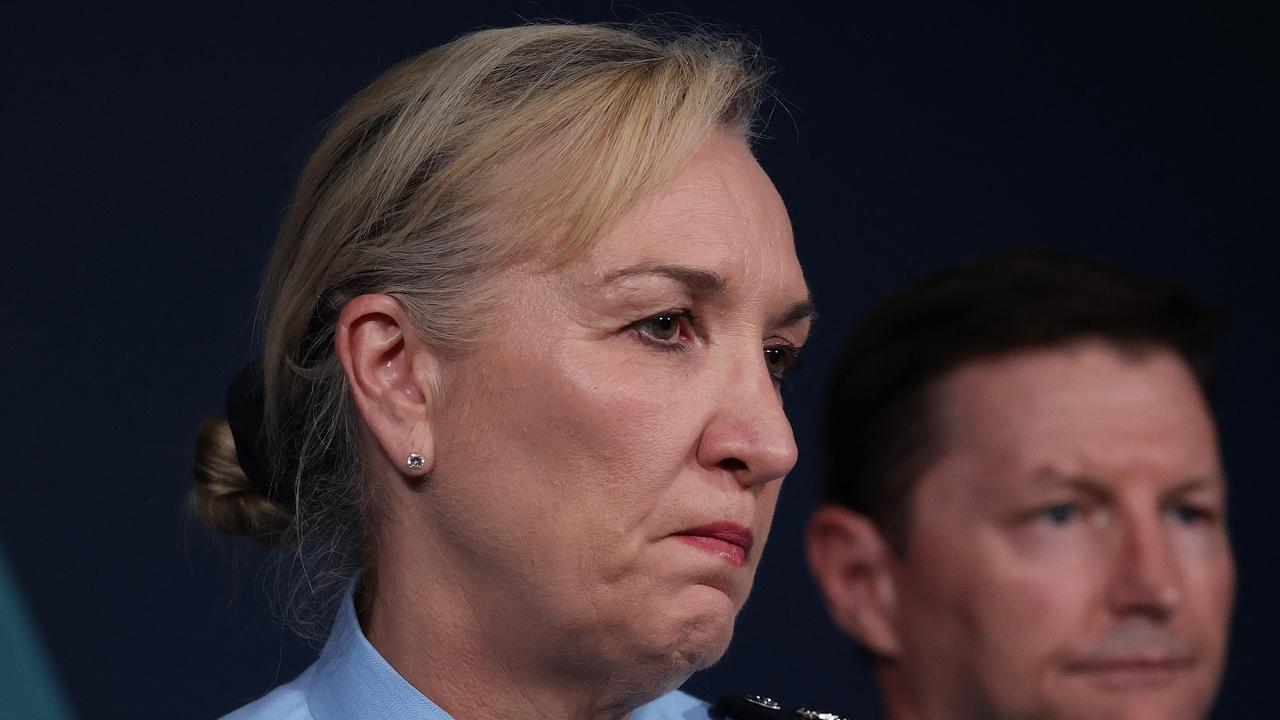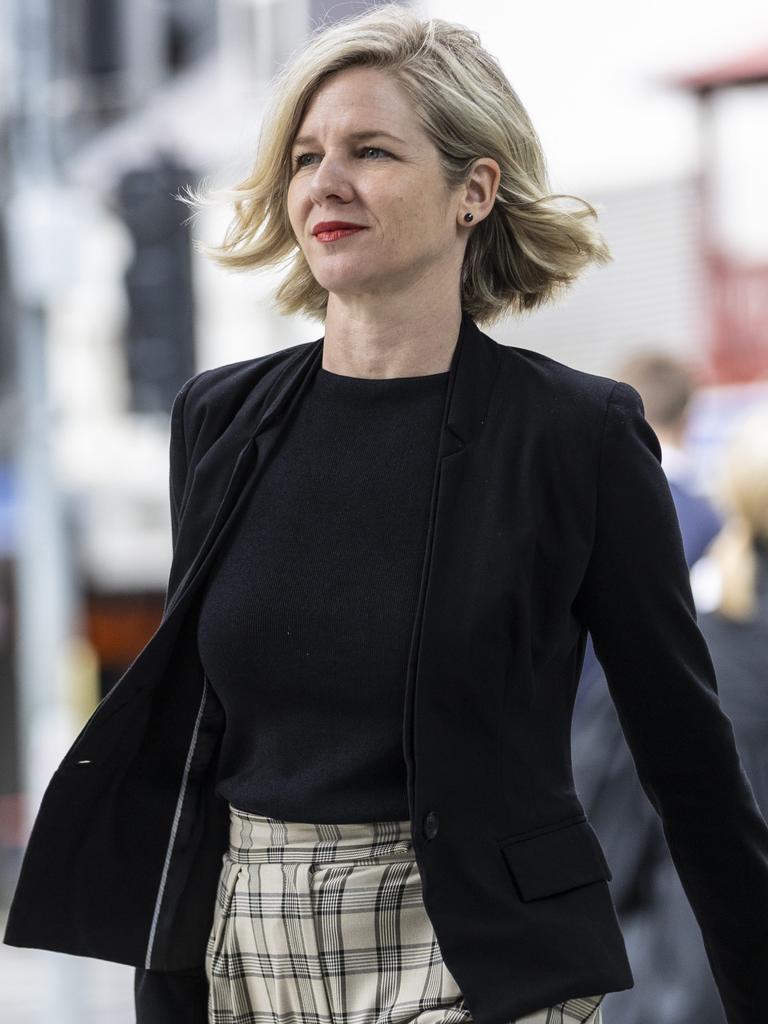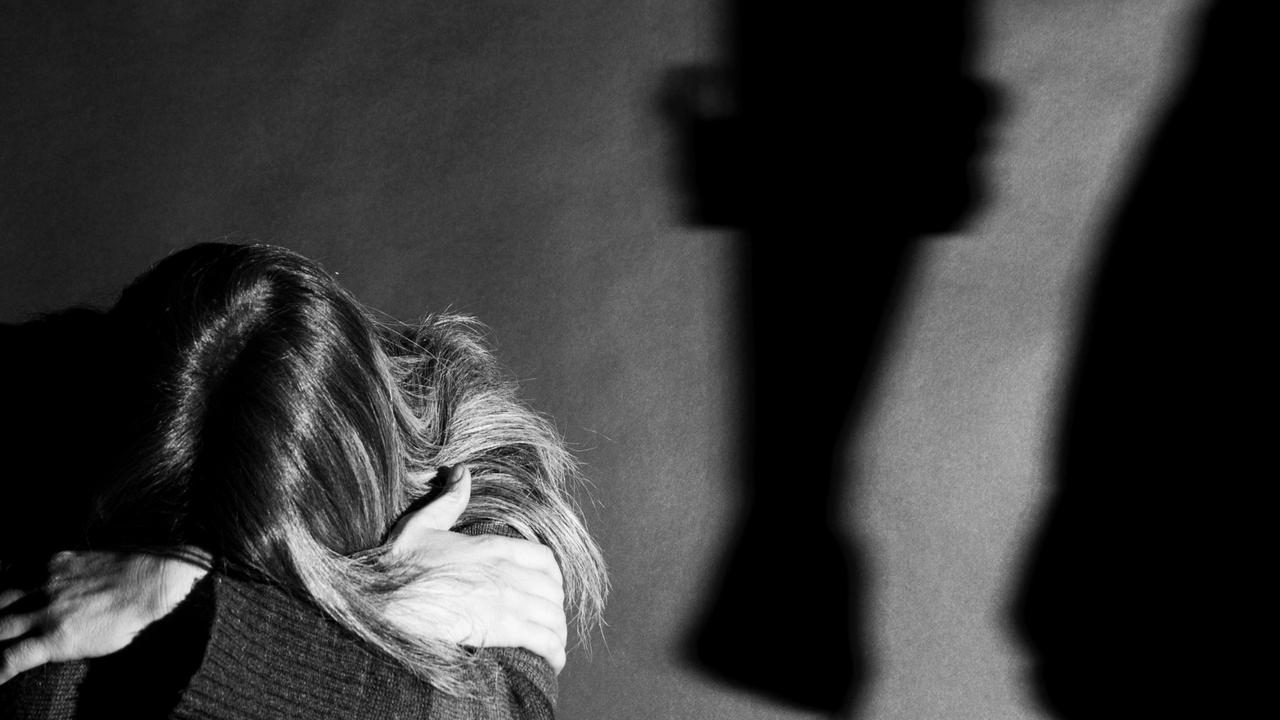Victims tell their disturbing stories to the Commission of Inquiry into QPS response to DV
Monique dated a police officer who was married, but when she broke it off, the officer began stalking her. She tried to report him to police, but was interviewed by officers working in the same district as him. Read Monique and other victims’ harrowing stories that emerged from the Commission of Inquiry.
Police & Courts
Don't miss out on the headlines from Police & Courts. Followed categories will be added to My News.
Women were ignored, not taken seriously and even mistaken as the abuser in horrifying survivor stories detailing the worst police treatment against victims aired in the Commission of Inquiry.
More than 800 victims shared their shocking experiences for the Commission of Inquiry into Queensland Police Service responses to domestic and family violence which resulted in 78 damning recommendations to fix the racism, sexism and misogyny within the service being handed down on Monday.
Police Commissioner Katarina Carroll admitted the service had failed the most vulnerable members of the community, including domestic violence survivors, First Nations people, and women.
“I acknowledge these issues and how they have affected the way we interact with the most vulnerable people in our community,” Ms Carroll said.
“For those who have experienced this, I am deeply sorry.

“There have been some examples of racism, misogyny and sexist behaviour which is not acceptable in our community – and even less acceptable from our police. Our police are our community, but we will rightly be held to a higher standard.”
A survivor, Cheryl, was one of many who submitted to the inquiry.
She detailed how police were more worried about Covid-19 protocols than her wellbeing after she was brutally bashed by her ex-partner Nigel.
Cheryl’s neighbour called the police one night after watching some of the violence unfold, but Cheryl was left with her abusive ex for more than eight hours before police showed up.
When they finally did arrive, Cheryl felt they were more concerned about Covid-19, and she was too scared to make a formal statement as she feared Nigel would become more violent.
Despite being the only witness to the assault, police didn’t talk to Cheryl’s neighbour and rather spoke to Nigel.
Police then took out a protection order against Cheryl, instead of Nigel, because she didn’t speak to them.

In the report findings, the inquiry identified issues with officers not properly recording details, victim blaming, and reports with scant details.
One of the recommendations included police improving its training in the next 12 months to ensure all relevant programs included the legal thresholds for making a protection order.
Another victim, Jayla, was subjected to huge police failures when dealing with First Nations victims.
Jayla, who lived in a remote community, called police after her partner Glenn assaulted her, but the attending officer didn’t believe her.
Instead of protecting her, the officer mediated an arrangement for Glenn to leave the house if she didn’t press charges.
As soon as the officer left, Glenn yelled at Jayla, saying there was no way he was leaving, and said “f--- you b----” when he refused to give her car keys.

Jayla was assaulted by Glenn the following day. She felt like the local officer didn’t believe her, so she drove a long way to report at another station. It was closed.
Jayla then drove to a hospital where she called triple-0 and spoke with two officers, a male and a female.
The male officer ignored her, then called her the next day to say he thought Glenn was the victim and he didn’t believe her.
The inquiry found that police did not know the impacts of colonisation, racism and other important issues that shaped how First Nations people experienced police.
“Common police practices, attitudes and beliefs particularly disadvantage First Nations women, who may be misidentified as the perpetrator of domestic and family violence and/or may not be identified or properly supported as a victim-survivor of domestic and family violence,” the report read.
During the inquiry, counsel assisting Ruth O’Gorman KC said they had received hundreds of submissions.

“Some of the submissions contain information about times when victim survivors were not treated with respect by police who should have been there to help them,” Ms O’Gorman said.
Another example of police failures was detailed in Monique’s story.
Monique was dating a police officer who was married, but when she broke it off, the officer started stalking her, including parking on her street, and going near her work and house.
Monique tried to report the officer to police, but was interviewed by officers working in the same district as him, causing her to become worried they would tell him and others.
Monique decided she wanted to apply for a protection order, but an inspector within QPS was dismissive about her request and suggested that she didn’t have a case because he wasn’t her husband.

One of the biggest recommendations made as a result of the inquiry was that the police integrity unit be set up in the next 18 months as an independent and separate body to deal with police complaints.
Joanna’s story was another example of police not taking domestic violence seriously when she was turned away from filing a report against her abusive husband.
She went to her local station armed with a folder full of evidence of coercive control, harassment, intimidation, threats to kill her pets and to bash her.
She was finally ready to tell her story.
Instead of taking her statement, the officer gave her a sympathetic look, thanked her for sharing and referred her to a support service.
She knew the police couldn’t help her and got a protection order.
Ms Carroll said she was committed to implementing the 78 recommendations in the timelines.






